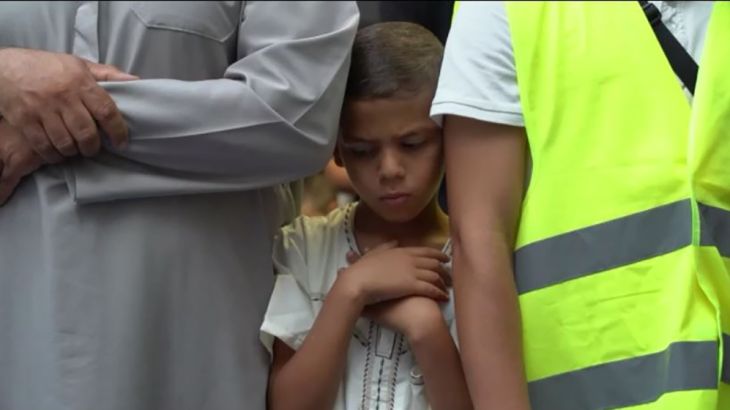
Truck Attack in Nice
French Muslim families who lost loved ones in the Nice truck attack struggle with bereavement and Islamophobia.
A film by Hossam Wahbeh
On July 14, 2016, 31-year-old Tunisian Mohamed Lahouaiej-Bouhlel ploughed a rented 19-tonne truck through crowds out celebrating France’s Bastille Day in Nice.
Keep reading
list of 4 items‘Prejudice, Islamophobia’: Free speech fears as UK redefines extremism
Police investigate if killer targeted women in Sydney mall stabbings
Why Biden’s White House iftar unravelled amid Gaza war
He was shot dead by police at the scene but 86 people died and 458 others from 19 different countries were wounded.
There have been 12 vehicular attacks since 2006, 10 of which occurred in the two-year period following this incident. Nice has the highest death toll.
Don't involve Islam in this issue. He ran down people aged four to 80. You can't kill people and say, 'God is Great'. God never tells us to kill people.
One of Bouhlel’s first victims was Fatima Charrihi, a Moroccan woman wearing a headscarf. In fact a third of the victims that day were Muslim men, women and children – including four year-old Kylan al-Majri who had come out to enjoy the fireworks with his family.
Truck Attack in Nice looks at the event through the eyes of three Muslim families who lost two young sons and a wife and mother. They re-tell their own versions of their ordeals on an evening that started with celebration and ended in violent tragedy, as they all struggle to come to terms with a loss that they simply cannot comprehend.
The relatively high numbers of Muslim victims in Nice and in the similar Barcelona attacks a year later, challenge the common perception that this type of violence is somehow an expression of Islamic teaching or values.
Lahouaiej-Bouhlel had been radicalised quickly through ISIL propaganda a few weeks before Bastille Day. He was known to French police for threatening behaviour, violence and petty theft but did not figure on the “Fiche S”, or France’s high-security watch list. He was a loner whose neighbours said smelled of alcohol and behaved strangely.
The 2016 attack in Nice followed those in 2015 on the Charlie Hebdosatirical magazine and Bataclan nightclub and neighbouring restaurants in Paris. Each incident turned up the heat in the debate about the relationship between Islam and violence in French politics and society.
|
|
In the months following Nice, politicians were campaigning for the French presidency.
Marine Le Pen seized the opportunity to make political capital out what she and her party call “the Islamisation of France”, and former Prime Minister Francois Fillon spoke of what he called a new type of fear running through some parts of French society.
“This radical Islam is plaguing some of our fellow citizens. It challenges our common values. I won’t allow this. I want strict administrative control of the Muslim religion before it takes root within the Republic,” he said.
But the French Muslims families in this film see things quite differently. For them, it’s not about Islam at all.
“Don’t involve Islam in this issue,” said Tahar al-Majri, who lost his ex-wife and four-year-old son Kylan in the Nice attack. “He ran down people aged four to 80. You can’t kill people and say, ‘God is Great’. God never tells us to kill people.”